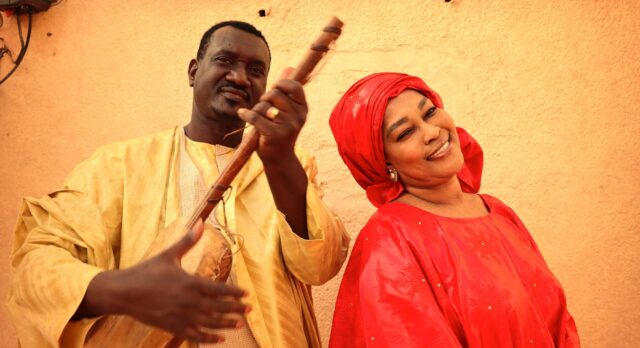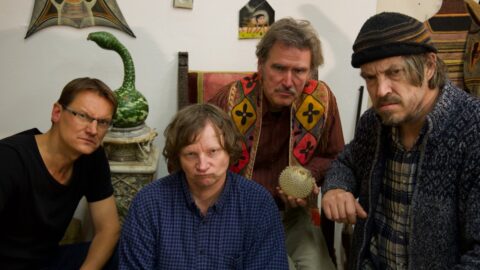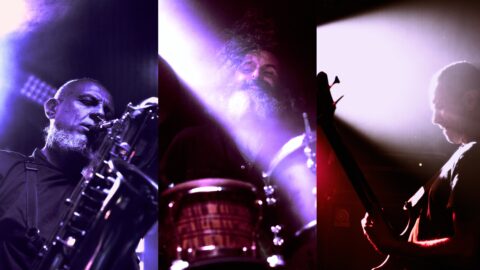"Bassekou is a genius. He confirms that American blues comes from Mali," Taj Mahal says of the musician who has long been in the background. According to Mojo magazine, Kouyate is the successor to the now-defunct guitarist Ali Farka Toure, while the Guardian has described him as an African Jimi Hendrix. While the twenty-one-stringed kora lute has become a musical symbol throughout Africa, in the landlocked region of Segou, where Kouyate hails from, the dominant instrument is the sonically rawer ngoni, which resembles a ukulele in size and is the forerunner of today's banjo. Its laconic, rhythmically expressive tones speak the same language as the electric guitars of the Tinariwen of the Sahara. Kouyate comes to Prague with a two-piece line-up, with his wife Amy Sacko and a repertoire that draws on the deepest roots of West African tradition.
The ngoni lute is carved from wood, has four strings and at first sight does not look too sophisticated. Despite its apparent simplicity, however, a masterful player can play refined and rhythmically intense melodic lines on this instrument. When the ngoni arrived on slave ships in the United States, it evolved over time into the banjo. The two instruments share a rhythmically effective staccato sound, with the ngoni sounding sharper and more urgent throughout. Today, Bassekou Kouyate is one of the instrument’s supreme masters. When he first came to the United States as an 18-year-old, he met bluesman Taj Mahal. Later, Kouyate expanded the sound register of the ngoni lute with black boxes and other electronics, and his earlier Ngoni Ba group included four variations of the instrument, differing in size and tuning. He has collaborated with the likes of Bela Fleck, Kronos Quartet, Damon Albarn, performed at Glastonbury, London’s Royal Albert Hall and in 2008 and 2010 at the Respect Festival in Prague. With Taj Mahal, he recorded the 1999 breakthrough album Kulanjan, combining American blues with his African roots, with contributions from virtuoso kora player Toumani Diabate.





















